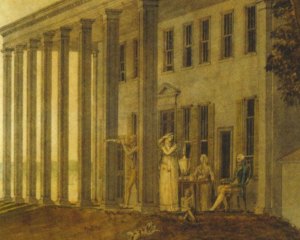5 reasons to note Washington's birthday

A holiday that includes all presidents diminishes the presidents who left a lasting imprint on the nation. We need to distinguish the great presidents from the bland, George Washington from James Buchanan.
Indeed, Congress recognized that distinction when it passed the Uniform Monday Holiday Act, which was signed by President Lyndon B. Johnson on June 28, 1968, and took effect Jan. 1, 1971. Despite what many people believe, the federal holiday on the third Monday in February is not called Presidents Day. Congress turned aside a proposal to give the holiday that name and decided to officially designate the Monday holiday “Washington’s Birthday,” even though some state governments and advertisers persist in calling it Presidents Day.
It is time for everyone to start calling it Washington’s Birthday again. Here are five important reasons why Washington deserves a place of preeminence on the holiday calendar:
1. He was commander in chief of the Continental Army. After winning the war, he relinquished his command and returned to civilian life in an era when a military dictatorship would have been just as likely.
2. He presided over the convention that drafted the constitution. Because of the universal respect Washington had gained during the Revolutionary War, his support of the document helped persuade states to ratify it.
3. He was the only president to be elected unanimously—twice.
4. After serving two terms, he gave up power voluntarily, which had almost never happened before. Some historians believe this may have been Washington’s most important contribution.
5. In his will, he stated that all of his slaves would be free upon Martha’s death. Martha freed those slaves a year after George died. (She could not, by law, free slaves received as her share of the estate of her first husband, Daniel Parke Custis.) The other three presidents of the founding era who owned slaves, Thomas Jefferson, James Madison and James Monroe, did not free all of their slaves in their wills. Jefferson’s will freed five of his 100-plus slaves. Madison and Monroe did not free any slaves in their wills.
For me, there is also another reason Washington’s birthday is special. The birthday of the father of our country is also the birthday of my father, who passed away in 2004.
Follow Chuck Springston on Twitter.
Like us on Facebook and tell us what you think.
Related:
Lincoln’s Gettysburg Address, Washington’s Mount Vernon linked
Washington’s prayer at Valley Forge: Fact or fiction?
Washington’s presidential library opens

